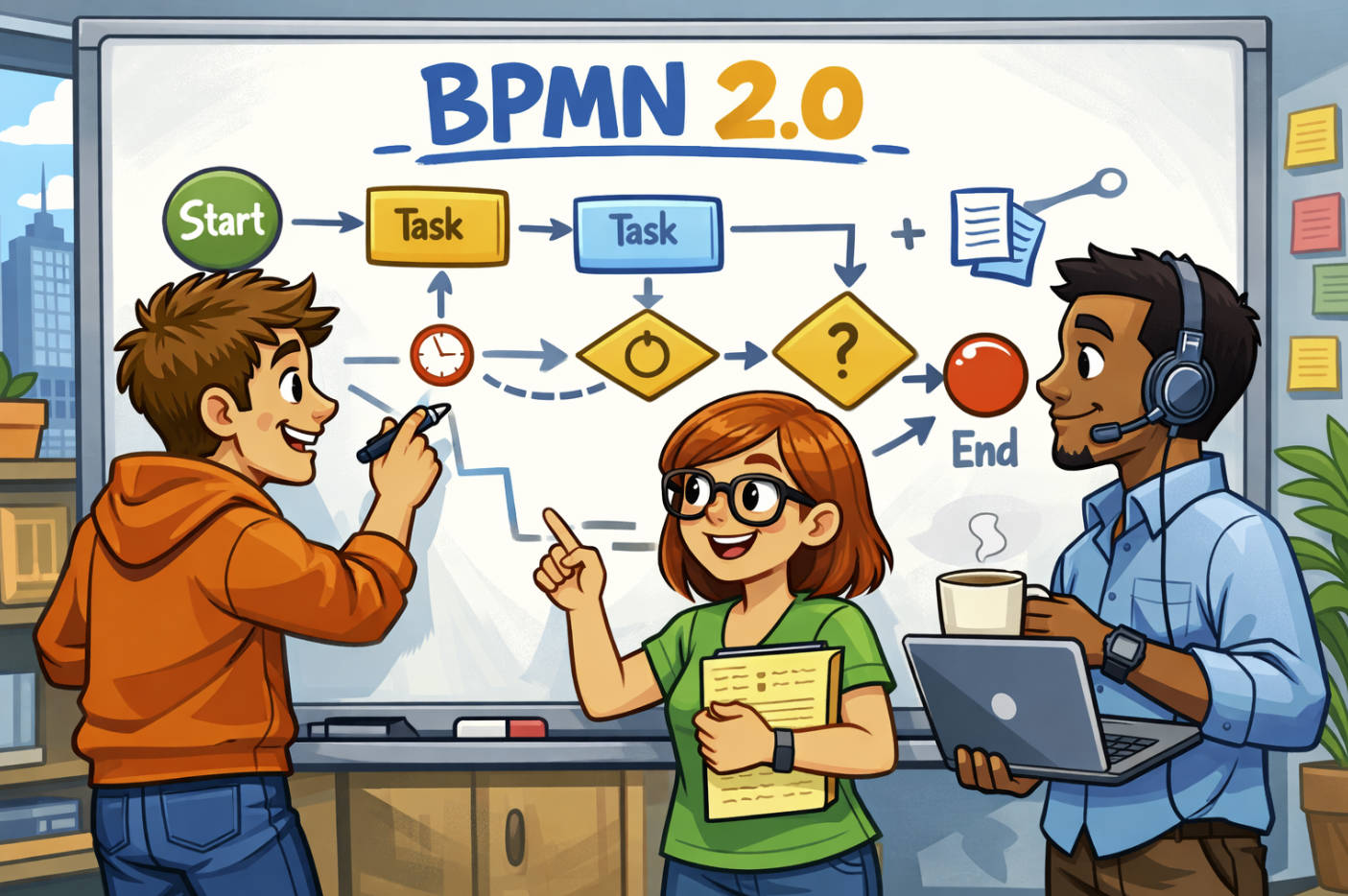A knowledge base is only as strong as the people who contribute to it.
Technology provides the platform, but emotional intelligence and people skills are what bring it to life.
As a business process analyst or documentation specialist, your challenge isn’t writing content—it’s getting the right information out of people’s heads.
That takes patience, curiosity and collaboration.
🤔 Why People Matter in Knowledge Capture
Processes live in people, not in systems.
Employees carry years of experience, shortcuts and unwritten practices.
Without their input, a knowledge base is incomplete.
The best analysts know that interviewing stakeholders requires more than asking questions.
It’s about building rapport, showing respect, and helping people feel comfortable sharing what they know.
🎤 Interviewing with Emotional Intelligence
When you interview someone for knowledge capture, tone matters as much as the questions.
Active listening is essential.
Instead of rushing to fill silence, let people think.
Often the most useful details emerge after a pause.
Mirroring back what someone has said helps confirm accuracy and shows you’re paying attention.
Being approachable makes people more likely to share the hard-to-document details, like the “unofficial steps” that keep things working.
📂 Structuring SOPs and Work Instructions
Once you’ve gathered information, structure is key.
A good SOP page should cover purpose, scope, roles, responsibilities and steps.
Work instructions should drill down into task-level detail, capturing each click or action.
Knowledge bases also need process documentation—flowcharts, decision points, or escalation paths.
Consistency across documents helps staff trust the content.
Templates and naming standards support this, but only after the right information has been collected through people-focused conversations.
👥 Navigating Different Personalities
Not every stakeholder will be easy to interview.
Some may be protective of their knowledge.
Others may be uncertain about how their input will be used.
Analysts need empathy and humility to overcome these barriers.
Acknowledging a person’s expertise and giving credit makes collaboration smoother.
By respecting people’s perspectives, you reduce resistance and increase buy-in.
🧩 Collaboration Across Teams
A knowledge base should never be built in isolation.
Collaboration across functions ensures accuracy and completeness.
IT might contribute system details.
Operations add day-to-day steps.
Leadership defines policy or compliance needs.
The analyst’s role is to weave these voices into a single, coherent resource.
This requires diplomacy and facilitation skills as much as technical writing ability.
🌱 Sustaining the Knowledge Base
Building a knowledge base is only the first step.
Maintaining it requires ongoing engagement.
Assign ownership to departments so documents stay current.
Encourage staff to comment on pages or suggest updates.
A healthy knowledge base reflects a culture of openness, where knowledge sharing is valued, not resisted.
That culture is shaped by people skills—by leaders and analysts who model listening, respect and collaboration.
🎯 Final Thought
A knowledge base isn’t just a library of documents.
It’s a reflection of how people in an organisation work together.
EQ skills—listening, empathy, humility—turn knowledge capture from a chore into a collaborative process.
When analysts bring these skills to their work, they create more than documents.
They create trust, alignment and a knowledge base that truly supports the business.






